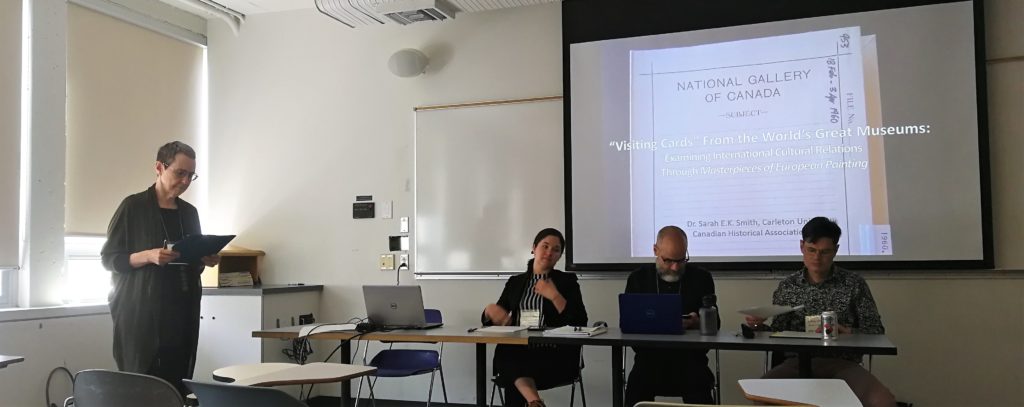On June 4, 2019, several NACDI members participated in a conference panel at the Canadian Historical Association annual meeting. This was held at the University of British Columbia as part of the 2019 Congress of the Humanities and Social Sciences. The panel was titled Aesthetic Linkages: The Cultural Relations Approach to Canadian Diplomatic History. Panelists included Sarah E.K. Smith (Carleton University), Eric Fillion (Concordia University), and Jeffrey Brison (Queen’s University). Commentary was provided by discussant Lynda Jessup (Queen’s University).
Diplomacy scholar R.S. Zaharna argues for a “cultural awakening in public diplomacy” (2012, 7), taking account of the fact that the success or failure of public diplomacy efforts is due to the capacity of governments to engage with culture in order to understand the national identities and interests of foreign counterparts. Zaharna’s arguments build on earlier scholarship, such as that of historian Akira Iriye, who contends that all international relations are in fact intercultural relations (1979, 116-17). Canada’s experience in these matters is worthy of investigation as evidenced by the 2016 “Rebooting Canadian Public Diplomacy” conference, which has inspired a forthcoming edited volume by Nicholas J. Cull and Michael K. Hawes (2019). Taking the work of these scholars as a starting point, the panel underscored the central place of culture in histories of international relationships—including between states, institutions, and non-state actors. At the session, panelists shared research that emphasized cultural relations as an approach that provides a more nuanced understanding to the instrumental practice of public diplomacy.
Engaging with a range of case studies in Canadian international history, the three papers delved into topics ranging from broadcasting to art exhibitions and philanthropy. Through this multifaceted discussion, the panelists addressed the divide and connection between cultural and public diplomacies—challenging the domination of traditional approaches to the study of the history of diplomacy in Canada.
